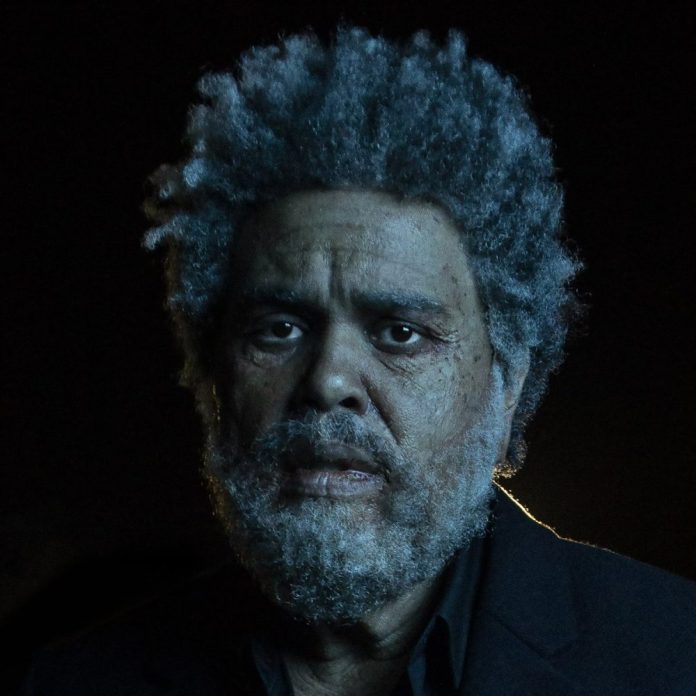Sofia Lyon & Andy Knox
Executive Content Editor & Contributing Writer
Abel Tesfaye, the versatile musician who releases work under his moniker “The Weeknd,” released his tenth studio album titled Dawn FM on Jan. 7. The 16-track record follows After Hours as another concept album, with a fictitious radio DJ voiced by none other than Jim Carrey narrating transitions between tracks. Dawn FM is a familiar sound to The Weeknd fans: it leans heavily into his electronic disco sensibilities inspired by the likes of Daft Punk and Michael Jackson. However, this LP showcases another area of Tesfaye’s musical influences, with a majority of tracks reminiscent of classic ’80s club groups, like New Order and Depeche Mode.
The album’s dynamic, echoey synth sound follows the recent increasingly popular trend of writing music with a dreamy sound that provides a pleasant, enveloping experience for the listener. The Jim Carrey segments ironically come in the comforting voice of a radio pastor who begins each brief monologue by warmly and euphemistically reminding the listener of their inevitable death. Then, with a comforting tone, he recommends they use their remaining time to forget their impending doom, any past mistakes, and whatever trauma they carry with them. Instead, they are invited to “just relax and enjoy another hour of commercial-free music on 103.5 Dawn FM.” The idea that you should immediately listen to The Weeknd’s music upon remembering both your inevitable death and your shameful regrets isn’t a new one; the skits, as well as the songs, point to a pervasive cultural idea that going to a club and dancing will solve your life’s unsolvable problems by making you forget them.
As this is a collaborative review, here are two perspectives on the new album by writers Sofia and Andy.
Sofia:
Dawn FM simultaneously digs into the past while looking to the future. The Weeknd employs beats and synth melodies which call back to infamous club tunes, with more polished, cutting-edge production. The record begins with the eponymous track, Dawn FM, an ethereal yet relentlessly techno introduction where Carrey is heard welcoming the listener to this otherworldly auditory experience. It sounds like what I imagine listening to the radio in the TRON universe would be like; this is fitting, considering his heavy influence from and previous collaboration with Daft Punk.
After this light, dreamy track, we immediately are met with the futuristic notes that start off “Gasoline,” which quickly turns into a New Order-esque beat. The repetitive lyrics, “it’s 5 a.m., my time again” and “it’s 5 a.m., I’m high again,” offer another nod to Daft Punk. The lyrics of death, drugs, and afterlife also appear here, introducing the record’s primary motifs: death, mortality, and the passage of time.
“Take My Breath” and “Sacrifice” follow in this club-esque, beat-heavy sound. The former leans into its club music function significantly, with generic lyrics that don’t do much in the way of storytelling as they do in accompanying the dance atmosphere of the song. “Sacrifice,” perhaps an unconscious homage to Depeche Mode, is similar to its preceding track with unsubstantial lyrics and a danceable club sound.
Though these were just my few standout tracks, overall Dawn FM is an interesting dive into a sound The Weeknd has perhaps been attempting to create since the dawn of his career. While some tracks certainly stand out more than others in their originality, and most will be relegated as nightlife anthems, it certainly shines with its sharp and retro-futuristic production. Who doesn’t wish they could return to the funky sounds of the ’80s or occasionally wonder what it would be like to party in a distant future? This record convincingly invites you into these coexisting fantasies.
Rating: 6/10
Andy:
The concept is both interesting and clearly self-referential, as most of the tracks seem to have the primary purpose of being club bangers. The club-oriented writing of the album is double-edged. On one hand, many tracks, like “Gasoline,” “Sacrifice,” and “Don’t Break My Heart” are all danceable, despite their thought-provoking lyrics painting a clear picture of The Weeknd’s various romantic experiences, which were each toxic in their own unique ways. On the other hand, the synths make for easy listening but they can get repetitive. “Take My Breath,” while danceable and fun, loops the same few samples over a minute with no lyrics or instrumentation added. Coupled with a focus on the already deeply explored topics of love gone awry and generally repetitive lyrics also seen in tracks like “Best Friends,” it is clear that the record’s optimal listening context is either a club or a drug trip (or both).
Tyler, the Creator and Lil Wayne’s respective feature verses on the tracks “Here We Go … Again” and “I Heard You’re Married” fell short of the high expectations both rappers have set for audiences in their careers. Both Tyler and Weezy’s verses follow the same basic pattern of reiterating the song’s concept while rhyming densely and spitting funny punchlines, but neither verse adds much new content to the song — neither artist is at his best.
Though some tracks fall short and none are entirely mind-blowing, Dawn FM successfully expresses an interesting and important concept about dealing with shame, regret, and the terrifying inevitability of time’s passage while casing it in a mostly pleasant, immersive listening experience.
Rating: 6/10











